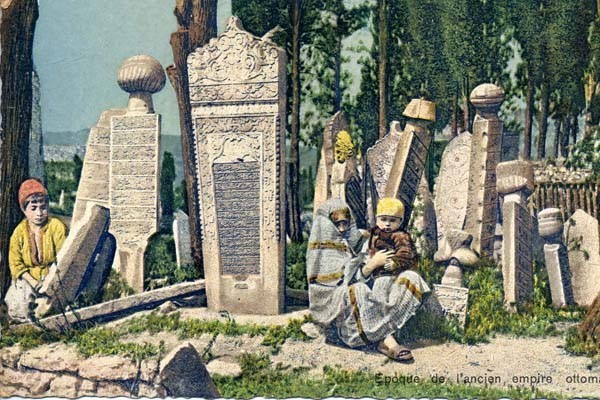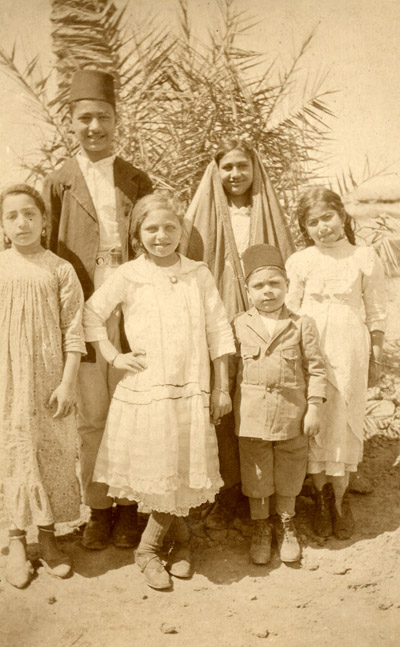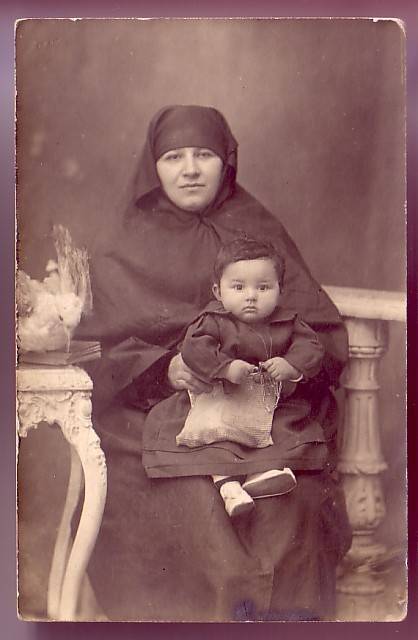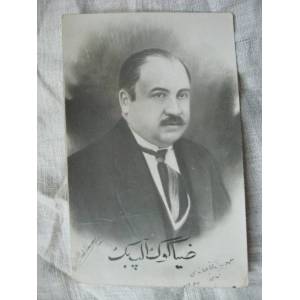(1).jpg)
DEATH IS CERTAIN, INHERITANCE IS LAWFUL!
Ottoman inheritance law is very original. The most detailed rulings in the Qur'an are related to inheritance.Heirs can divide the inheritance however they wish. If they cannot agree, the court divides it according to the Qur'an.
Disputes among people generally arise over property. There are not few brothers who become enemies due to inheritance. To prevent such conflicts, all legal systems throughout history have organized detailed inheritance divisions. In the Qur'an, this is also the most clearly and extensively stated matter. This is also called fara’id (Islamic inheritance rules). The hadith “The first (religious duty) to be forgotten from my ummah (the Muslim community) will be fara’id” is well-known.

I Disown My Child!
The Islamic inheritance system is very original. Here, before the property passes to the heirs, certain procedures are carried out. First, funeral expenses are covered from the deceased's assets. Then debts are paid. After that, the will is fulfilled. If the will exceeds one-third of the estate or is made in favor of one of the heirs, it is carried out only with the consent of the other heirs. If there are no heirs at all, the entire estate can be bequeathed. Finally, the property is distributed among the heirs.
Since the property does not pass directly to the heirs, they are not responsible for the debts. Therefore, renouncing the inheritance is not in question. Heirs may use their shares from the undivided inheritance. They can divide the inheritance among themselves by mutual agreement. One may receive more or less than another. If they cannot agree, or if there is an absentee, a mentally ill person, or a young child among them, the court divides it according to fara’id. In the Ottoman Empire, the estates of state officials were always divided by the court. Even today, heirs can divide the inheritance among themselves either according to fara’id or in another agreed-upon manner. However, if they cannot agree and the matter goes to court, the inheritance is divided according to civil law.
The deceased cannot disinherit an heir either during life or through a will. That is, there is no such thing as “disowning a child.” However, during life, the deceased may give their property to whomever they wish, including an heir. Even if an heir renounces their share during the deceased’s lifetime, they can still inherit later. An adopted child cannot inherit. However, one may bequeath to them.
An heir who dies before the deceased cannot inherit. Nor can their children take their place and inherit. A grandchild, known among the public as “grandfather’s orphan,” can be left property through a will. A fetus that is in the mother’s womb at the time of death becomes an heir if it is born alive. One who is not of the same religion as the deceased; one who killed the person they are to inherit from; a slave and a child born of fornication cannot inherit.

Division of the Inheritance
First, the shares mentioned in the Qur'an are given to the twelve individuals called ashab al-fara’id (those with fixed shares). These are the deceased’s daughters, sons’ daughters, father, mother, grandmother, spouse, and sisters.
What remains is given to the asaba, the closest male relatives such as the son, paternal uncle, or brother. If none exist, and the deceased was a freed slave, the inheritance goes to the former master. If this is also not applicable, the remainder of the inheritance is distributed among the ashab al-fara’id (excluding the spouse) in proportion to their shares.
Next comes the turn of the dhawu al-arham, those related to the deceased through women, such as daughter’s son or sister’s son. If none of these exist, the inheritance is given to a person with whom the deceased had made a pact of brotherhood. Finally, the inheritance passes to bayt al-mal, the public treasury. If there is no bayt al-mal, the inheritance belongs to the poor.

How Much Is a Woman’s Share?
When dividing the inheritance, giving sons twice the share of daughters leads some people to think incorrectly. In fact, Ziya Gökalp, a Turkish sociologist from the republican era, in his poem titled “Family,” says:
Life remains incomplete unless woman is complete!
To make the family just,
Marriage,
divorce, inheritance: all three must be equal!
A girl inherits half of a boy, a quarter in
marriage,
So long as this stands, neither family nor nation will rise.

In pre-Islamic legal systems, women were not given a share in inheritance, and in fact were not even granted legal capacity to own property. Until 1912, in Switzerland, men were given twice the share of women in inheritance. In England, girls received no share in land; if a man had daughters but no sons, his land passed to his closest male relative.
In Islamic law, the economic status of the woman is secured, and she is not left in need of an inheritance share. All her needs must be met by her husband, father, brother, uncle, or other close male relatives. A man is obligated to provide for a woman; whereas a woman is not even obligated to provide for herself. For this reason, while men should have received the entire inheritance, a privilege was shown to women, and they were given half of what the men received.
One of the many reasons for giving the daughter half the share of the son is the financial burden on men due to the aqila (collective blood-money responsibility), mahr (dowry given by the groom), and nafaqa (maintenance) system. The daughter receives a dowry and half a share of inheritance from her father, as well as mahr and nafaqa from her husband; whereas the man must give mahr and nafaqa when he marries. Moreover, the man pays the blood money for his father and sisters. However, a woman neither pays anything to her husband or children nor is responsible for her brothers’ blood money.
A man is also obligated to engage in jihad (struggle, especially military). He may even have to give his life in this cause. A woman is not obligated to participate in jihad. One of the wives of the Prophet Muhammad, Umm Salama, once expressed her astonishment by saying, “O Messenger of Allah! Men go out for jihad, women do not. Despite this, we women are given only half a share of inheritance.”
A woman receiving half the share of a man is not an absolute principle. If it were, the mother would receive half the father’s share of 1/6. However, she also receives 1/6, like the father. When maternal siblings become heirs, they receive equal shares. The same applies when a son’s son and the paternal aunt are among the heirs.
Önceki Yazılar
-
THE WATER OF IMMORTALITY IN THE “LAND OF DARKNESS”28.01.2026
-
THE WORLD LEARNED WHAT FORBEARANCE IS FROM SULTAN MEHMED II21.01.2026
-
THE RUSH FOR GOLD14.01.2026
-
TRACES OF ISLAM IN CONSTANTINOPOLIS7.01.2026
-
WHO CAN FORGIVE THE KILLER?31.12.2025
-
WHEN WAS PROPHET ISA (JESUS) BORN?24.12.2025
-
IF SULTAN MEHMED II HE HAD CONQUERED ROME…17.12.2025
-
VIENNA NEVER FORGOT THE TURKS10.12.2025
-
THE FIRST UNIVERSITY IN THE WORLD WAS FOUNDED BY MUSLIMS3.12.2025
-
WHO BETRAYED PROPHET ISA (JESUS)?26.11.2025